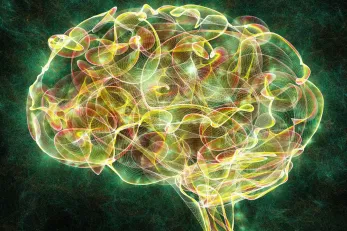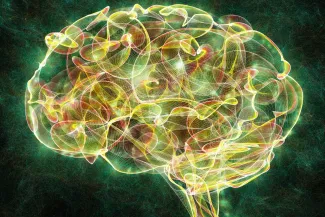Search
Substances
The Impact of the COVID-19 Pandemic on Gambling in Europe
INTRODUCTION: The COVID-19 pandemic disrupted Europe‘s gambling market, reshaping consumer behaviour, market structure, and regulatory priorities. Restrictions on land-based venues and the cancellation of major sporting events accelerated a...
Alcohol Labelling: Czech Expert Perspectives and Recommendations
INTRODUCTION: Consumption of alcohol has significant influence on the physical and mental health of the Czech population. Nevertheless, public awareness of alcohol-related consequences in the Czech Republic remains inadequate. One potential...
The power of people who use drugs as mass media influencers in changing public opinion during the global overdose epidemic
Background
Thousands of people have lost their lives due to overdose-related fatalities linked to the potent synthetic opioid epidemic, as mortalities increase annually. British Columbia (B.C.) Canada has been an exception, where the...
“I Can’t Do It Without My Phone”: Nomophobia and Its Impact on Academic Performance – A Systematic Literature Review
INTRODUCTION:
Nomophobia, the fear of losing access to a mobile phone or the Internet, is becoming increasingly prevalent among students due to the rapid digitalization of society and can affect their ability to concentrate, the quality of...
Network analysis of Internet Gaming Disorder IGD and Gaming Motivation GAMS
INTRODUCTION:
The global rise in online gaming has led to increased prevalence of Internet Gaming Disorder (IGD), now recognized by both the DSM-5 and ICD-11, albeit with differing diagnostic criteria. However, the relationships among IGD...
Exploring the Impacts of Helperseekers’ Knowledge, Belief, and Attitude on the Choice of Treatment for Substance Use Disorder
BACKGROUND:
Recently, Abia State—like many other states in Nigeria—has experienced a growing number of deaths related to substance use, leading to increased cases of substance use disorders and comorbidities. Family members and relatives...
Perspectives on addiction-related problems in Vietnam
The article provides an overview of key substance use and addictive behaviors in Vietnam, alongside the development of addiction science, drawing from a synthesis of literature and the authors' perspectives. Over the last two decades, the...
A systematic review of reviews on comprehensive community initiatives to prevent or reduce alcohol and other drug harms
Background and Aims:
Comprehensive community initiatives (CCI) aimed at reducing or preventing alcohol or other drug (AOD) harms incorporate multiple initiatives delivered to whole communities to effect community-level change on...
The Promotion of Alcohol, Cannabis, Gambling, Tobacco and Vaping Products: A Comparative Analysis of the Potential of Legal Frameworks to Limit Exposure Among Minors
Promotions deemed attractive to minors concerning alcohol, cannabis, gambling, tobacco and vaping are circulating in media outlets and places where minors are very active. This report examines the different legal frameworks in Canada that...
Stimulant Use and Related Harms in Canada: Recent Trends
This issue is a special two-part series. The first part features a regional breakdown of reports from seven Canadian Community Epidemiology Network on Drug Use (CCENDU) nodes and five drug checking services from across the country. It...
Addressing Cannabis Hyperemesis Syndrome in Canada
Cannabis is one of the most commonly used substances in Canada. In 2024, about one in four people (26%) people living in Canada said they had used cannabis within the past year, and 6% said they used it daily or almost daily (Health Canada...
Public perceptions of heroin use: the influence of smoking, marital, and employment status on stigma toward people who use substances
This study explored public stigma toward people who use heroin in Jordan, where cultural and religious beliefs often frame substance use as a moral failing. A nationwide online survey of over 900 adults found high levels of stigma...
The multidimensional social ecological needs and service utilization patterns of youth using non-medical prescription opioids: an observational study of routinely collected data in a provincial integrated youth services initiative
This study examined how non-medical prescription opioid use (NMPOU) among youth aged 12–24 is linked to their health, social needs, and use of services within an integrated youth services network in British Columbia, Canada. Data from over...
Efficiency of behaviour support interventions for smokeless tobacco cessation by dentists
Smokeless tobacco use is very common in South Asia, but there is limited evidence on effective ways to help users quit. This randomized study evaluated a face-to-face behavioural support program (BISCA) compared with self-help materials...
Professional Self-Care in Addiction Services: Ethical Practice, Compassion Fatigue, and Workforce Sustainability
Why We Serve (and Drink) Alcohol at Substance Abuse Events and Why We Should Stop: An Autoethnography
INTRODUCTION:
Alcohol consumption is fully integrated into rituals and celebrations, generating social pressures that affect individuals, especially those with a history of drug dependence. The normalization of alcohol use is evident in...
How Do Stimulant Users Perceive Available Drug Demand Reduction Interventions in Croatia?
BACKGROUND:
This study represents the first qualitative research on stimulant use in the Republic of Croatia, offering valuable insights into the perspectives of hard-to-reach stimulant users. The aim is to better understand the needs of...
Recent Pattern of Substance Use Among Patients with Substance Use Disorders in a Rehabilitation and Treatment Centre for Addiction in Dubai
BACKGROUND:
Substance use disorders (SUDs) are a major contributor to global disease burden, premature mortality, and social disruption. While international data demonstrate shifting trends in polysubstance use, evidence from the United...
Perceptions of Law Enforcement Personnel and Public Health Professionals on Synthetic Drug Use in Nigeria
BACKGROUND:
Nigeria is one of the countries in the world severely impacted by synthetic drug production and use, yet lacks fundamental understanding of the synthetic drug market, how many people use, and how much they use.
AIMS:
The aims...
Dual Disorders in Patients at the Department of Addictology
BACKGROUND:
People with addictive behaviour and co-occurring mental illness represent a particularly vulnerable group whose treatment is often complicated. While the prevalence of these patients is high, the lack of research into this area...
Share the Knowledge: ISSUP members can post in the Knowledge Share – Sign in or become a member









